Their first impressions really couldn't have been much different, but there was a common bond between the two that shines a light deeper into the psyche of the kind of player that Kansas City Chiefs general manager John Dorsey seeks when building a roster.
Both Chris Jones, the 6-foot-6, 308-pound defensive lineman out of Mississippi State, and former Notre Dame cornerback KeiVarae Russell, were selected by the Chiefs on day two of the 2016 NFL Draft, and both revealed, in their own ways, that their characters are grounded by humility and they are mature beyond their years.

It's something Dorsey values when evaluating these prospects—character.
Just minutes after hearing their names called, both players were able to talk via conference call with the local Kansas City media.
Jones seemed energetic and ready to take on the world, cracking jokes and keeping a group of normally curmudgeon-like journalists on their toes and laughing through a good portion of the call. He took time to show a personality that most of Chiefs Kingdom will soon love.
"I'm excited to be a part of the family now," Jones said, opening up to reporters. "I had three years in college, I have no degree and I'm unemployed, so I'm ready to get on a team."
It was the kind of lighthearted joke that immediately endeared him to the writers and broadcasters on the other end of the line.
Jones, who had 7.5 tackles for loss and 2.5 sacks last season at Mississippi State, boasts an 85-inch wingspan and looks exactly like the kind of player, from a physical perspective, that you want walking off of the bus first.
He's a specimen, and he's pretty good on the field too.
The fine folks over at Pro Football Focus called him "one of the steals of the draft" as the Chiefs picked him up in the second round at No. 37 overall.
"Jones has immense potential, already posting the No. 2 pass rush grade in the nation last year, but still showing room to improve from a technique standpoint. He's strong and explosive and his two-year grades on about 1,000 snaps are comparable to the best interior defensive linemen in the class. This could end up being the steal of the draft."
Jones was No. 12 overall on the PFF big board and the No. 3-ranked interior defender.
"Everybody that came back about him said that he simply likes the game of football and he's willing to learn at his trait and wants to be good," Dorsey said of working through Jones' evaluation over the past several months. "Any time you get guys like that who want to be good, that's a starting stone.
"The game of football is meaningful to him."
Meet the Chiefs second-round pick, DL Chris Jones.
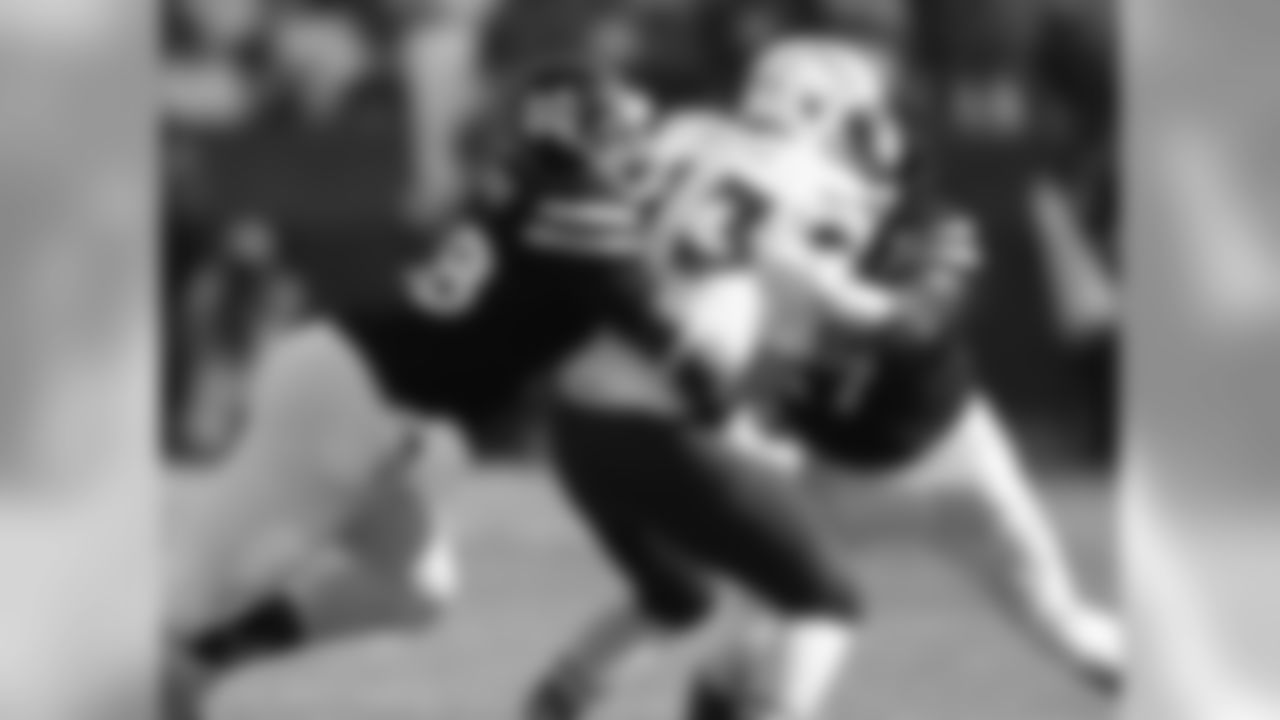
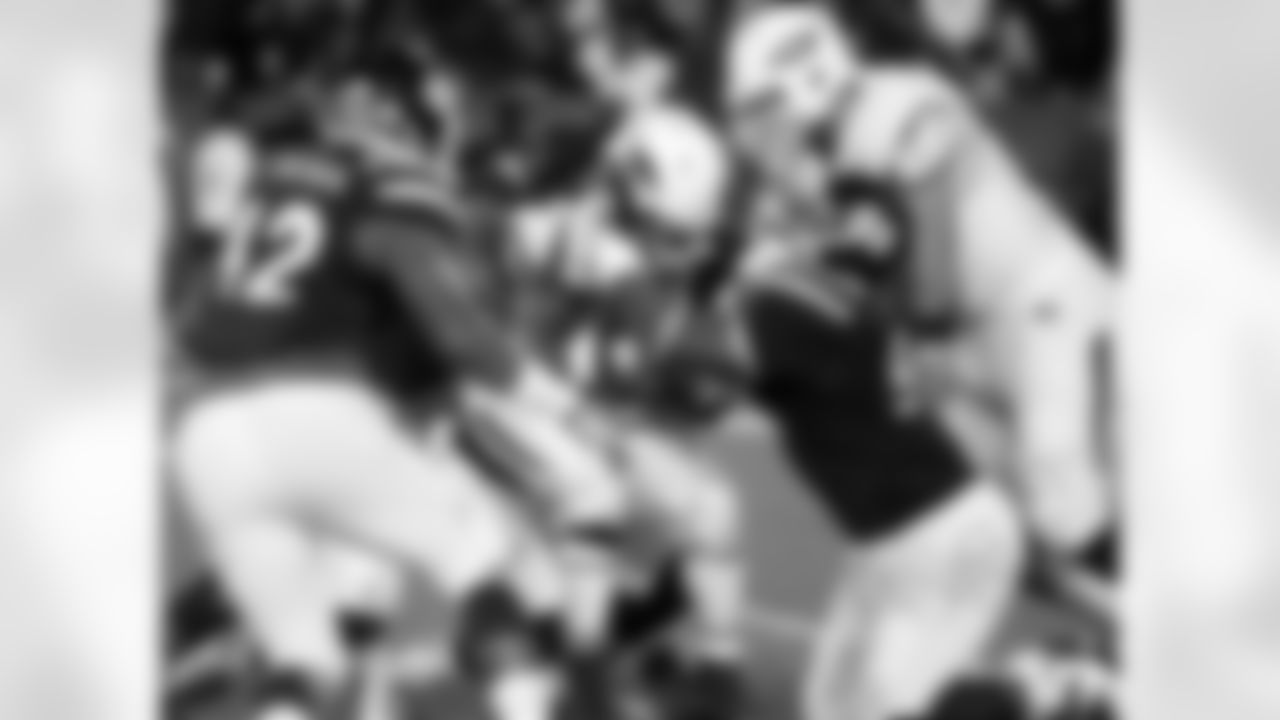
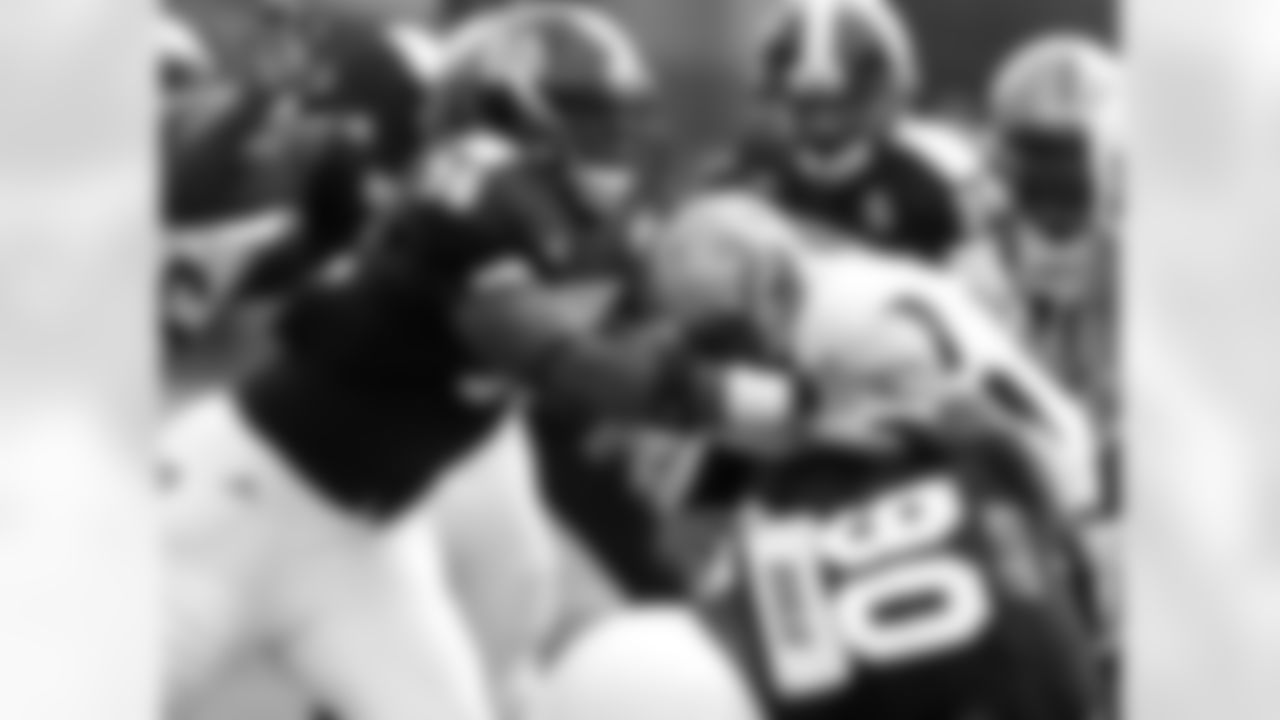

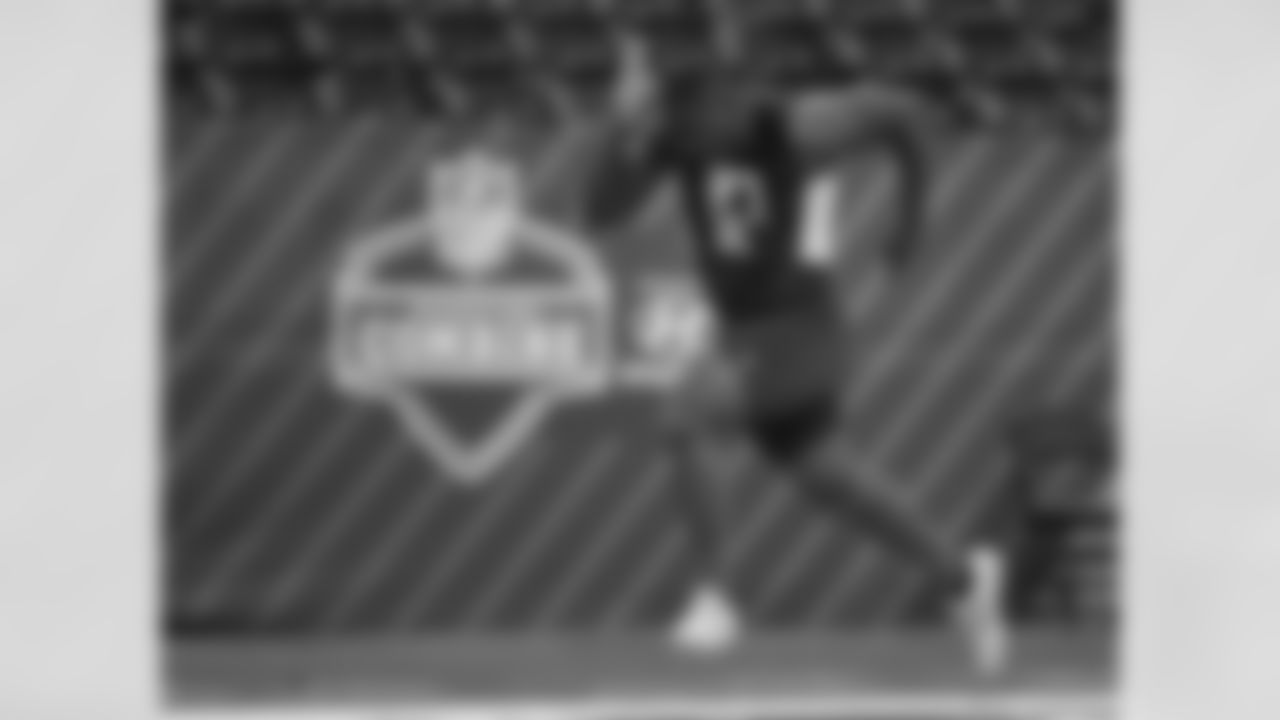











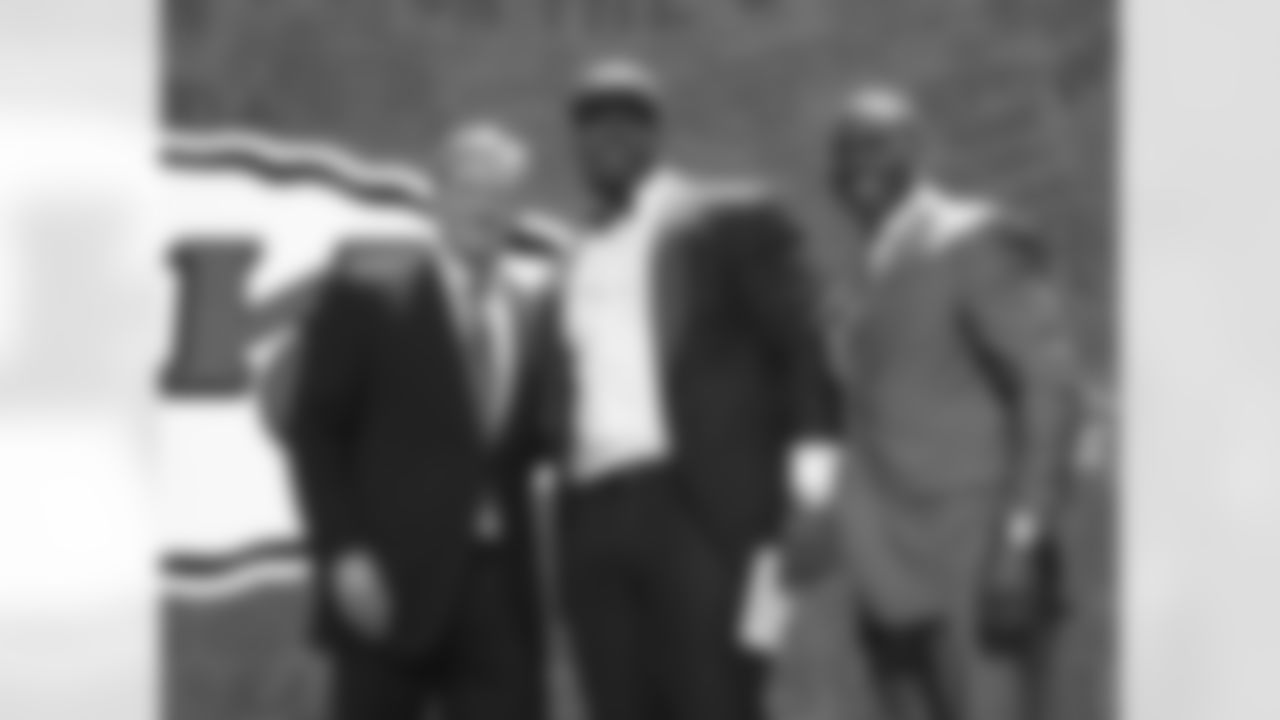


Jones enters a locker room surrounded by veteran talent, particularly at his position group along the defensive line, which is now led by their new position coach, Britt Reid.
"All the guys in there – (Dontari) Poe, (Jaye) Howard, (Allen) Bailey – those are hard-working, tough, class acts," head coach Andy Reid said. "And listen, Britt has got a new challenge here being the D-line coach. He's got another player here that he has an opportunity to coach (in Jones).
"I'm happy for all of them. That's a good place for this kid to be."
Jones displayed plenty of versatility throughout his time in college, lining up all over place on the Bulldogs defensive line. He played the 1, 3 and 5-technique positions, which is a fancy way of saying he brings a lot to the table for his new defensive coordinator Bob Sutton.
"I definitely think I have that skillset to be a pass rusher," Jones noted. "There's a few things I need to work on, but the sky is the limit for me. So I'm going in with the mindset that I need to learn from the older guys, see what they do best, and just watch, pay attention and grind."
The highlight reels, the physical measurements and stats are pieces of the puzzle for Dorsey and company when evaluating a prospect, but what makes these guys tick?
What separates the high-ceiling top prospect that never pans out from the late-round flier who changes the complexion of an entire defense?
These are the questions whose answers can change the trajectory of an organization, and perhaps that's why Dorsey prides himself on being able to read someone's character within the first 15 minutes of meeting them for the first time, or why the Chiefs are off to the best start in the first three years of a general manager, head coach or quarterback's tenure in Kansas City.
Dorsey seeks character, recognizes it and then tries to accumulate those who have it.
For Jones, the answer to his story lies within the depth of how he became the man he is today, and is built upon the foundation of where he came from – Houston, Mississippi – the small town with a population of less than 5,000 people that's located two hours Southeast of Memphis, Tennessee.
"You have a prison, and then McDonald's is the biggest store around – they get all the business," Jones explained. "Hardee's is the next biggest place to eat at. We have one grocery store – it's a monopoly. It's not that big – everybody knows everybody.
"The men are jealous and the women are in competition."
From a small town in Mississippi to the NFL, Jones keeps in mind where it all started for him.
"The town means a lot," Jones said of his hometown. "It really inspired me into becoming the person I am today. Going through the hardships of that time, trying to get away from that negativity that's going on in the streets. You resort to basketball, football, or running track or something. Coming from a small town, not many people end up living their dream as I did.
"It shows the younger generation that if you work hard and you work your tail off, you can put yourself in a position to take care of your family and live your dream."
Jones is also aware of the platform he now has to be able to make a difference for the next generation of kids coming through.
"It's very important to go back to the community," Jones explained. "I think the younger generation, we're in positions right now to change their lives. Kids look up to us. When you have the opportunity to go back and inform them on what they can do to succeed in life, to be great, or how you can impact their life, or make a change in their life, I think that's a hell of an opportunity right there."
The opportunity presented for Jones and his newest teammate, cornerback KeiVarae Russell, are right there for the taking.
After trading down a second time in this draft, Dorsey picked up an additional fourth-round pick (No. 106 overall) and then selected the Notre Dame cornerback with the No. 74 overall pick.
Russell, who played most of last season through a stress fracture that ultimately led to surgery, fits well with what the Chiefs like to do defensively, and he's been tested.
Meet the Chiefs third-round selection, KeiVarae Russell



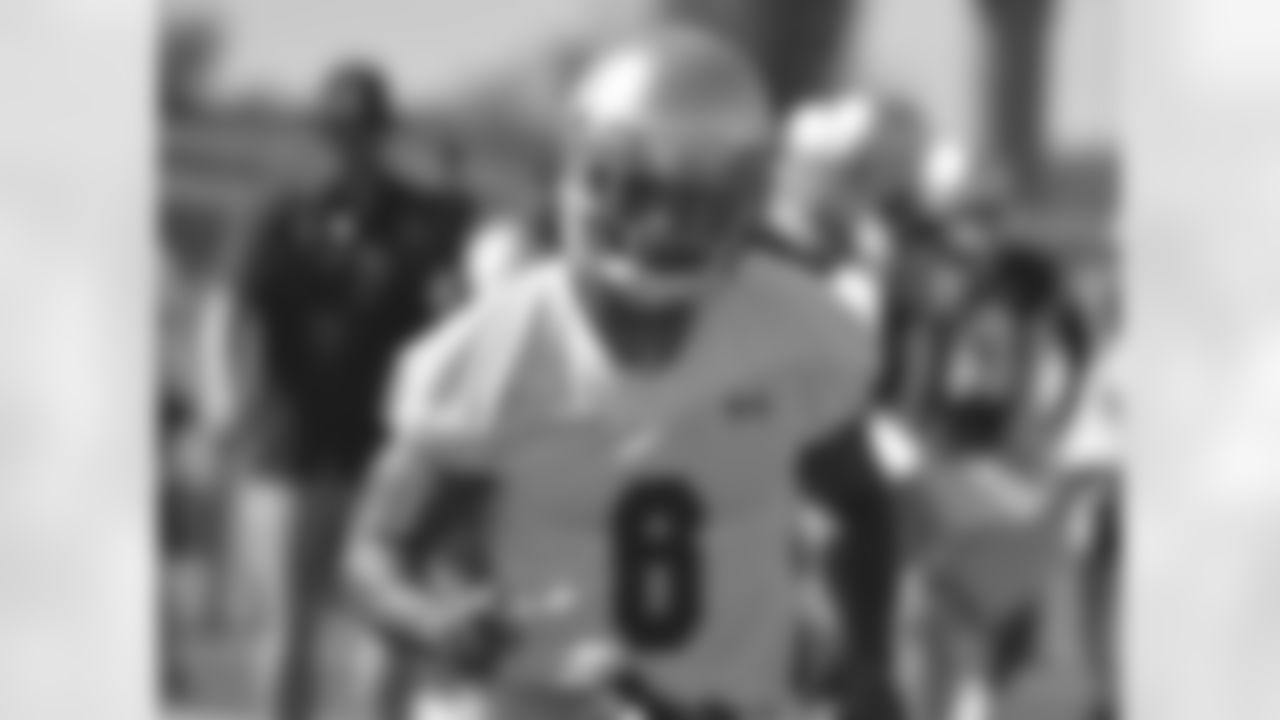



"[Russell] has faced as good as receivers as anybody's going to face in college football with the schedule that they have," Dorsey explained of the Notre Dame star. "He's shown that he can stand up to that competition, and I foresee him being able to do that here in the NFL."
Both Dorsey and Reid stated that Russell, who didn't participate in any of the physical drills at the NFL Scouting Combine in Indianapolis because of his surgery, should be ready to go when rookie minicamp begins next week.
When talking with the local media, Russell couldn't help but succumb to the gravity of the moment.
"It's going to help out because my mom, we've been living in poverty my entire life," Russell explained through tears. "I grew up in a place called Springwood Projects (Washington). Rent at the time that I was growing up was $50. That's just to tell you how cheap we were living. She was a single mom. So it's just different to be on the start of life at 22 years old, be able to start a life that's far beyond everybody in my family, far beyond my friends that I grew up with.
"Obviously, I've got work to do. You're not guaranteed just because you're drafted. You're not guaranteed. I know my work ethic—my ability to want to be great, my ability to want to be successful. That's going to work out. I think this system will fit the kind of player I am.
"I'm just excited to try to get to Kansas City as soon as I can and go out there and make something happen."
"We just hugged," Russell said of him and his mother after he got the call, which he posted a video of on his Instagram account. "I cried. I think she was crying. I didn't look at her, I was looking down. The thing is we were exchanging tears, and we didn't say much at all. We just hugged for maybe about two minutes. Just holding each other, embracing that moment of man, we did it. We made it to the NFL.
"I've been telling her since I was a kid that I was going to make it. It's crazy man."
While football is the ticket, Russell understands that education is the game. He's one semester away from getting his degree, and after, at times, a bumpy road through his college journey, walk away with what's most important.
While Jones' story is built upon the foundation of the man he became running around that small town, Russell's story is built upon that foundation of being raised in poverty by a single mom.
Two stories bonded by men who refused to let their surroundings dictate whether or not they were going to be successful.
"It means a lot to them," Reid said of his new players' days. "Those guys have been through so much, I think they appreciate it and the opportunity."













